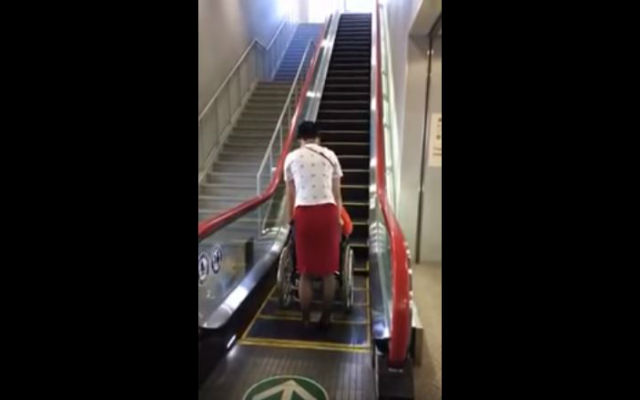- Source:
- me Wallander / @matsumoto_matsumo / @mwichary
- Tags:
- Blind / convenience / Cool / Disability / Escalators / Handicap / Hospitality / Impaired / Japan / Lifts / Omotenashi / safety / Technology / Wheelchair / YouTube
Related Article
-

Guy Deliberately Bumping Into Women Regrets It When He Tries It On Pro-Wrestler
-

Treasure Hunt Inside A Warehouse For A Basketful Of Arita Porcelain
-

Japan’s Early Blossoming Kawazu Cherry Blossoms Are In Gorgeous Full Bloom Right Now
-

Pokémon-themed Maternity Clothing And Baby Goods Launching In Japan For Pokémon Fans Old And New
-

Nagano farmers and restaurants team up to provide home vegetable meals during pandemic
-

How to turn cheap 7-11 food into a gorgeous Japanese traditional breakfast



It's not uncommon for visitors to Japan to return home with high praise for the customer service and hospitality shown to them, whether it be the meticulous care with which baggage handlers process luggage, or the quirky way with which a certain ramen chain stores emergency toilet paper. What may surprise some the most, however, is some of the country's infrastructure geared towards making things easier for the physically disabled.
YouTube user me Wallander uploaded the following video which, while the title "An escalator that also supports wheelchairs" is in Korean, takes place in a Japanese airport. In it, airline staff help the user of a wheelchair onto an escalator, which gradually shifts three steps into a platform for the wheelchair to rest on until it safely arrive at the top. You might argue an elevator to be more convenient, but it appears there isn't one in this area of the building.
At the very least, it's an alternative to an elevator.
Japan's approach to improving access and convenience for those with disabilities is not entirely unique, but it sometimes goes unnoticed. For instance, Yellow Tactile Ground Surface indicators are strategically placed in areas to help guide the visually impaired get around crowded areas--particularly train stations and platforms. In the same areas, staff is typically on hand to assist with escort and providing ramps when needed.
A chirping audio guide sometimes indicates the start point of an escalator as one approaches.
In some rural areas of Japan access and service like this shouldn't always be expected, but here's a way to brush up on sometimes unnoticed ways in which Japan strives to create intuitive interfaces and customer service for all types of people.